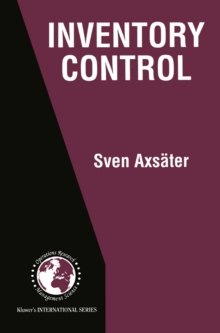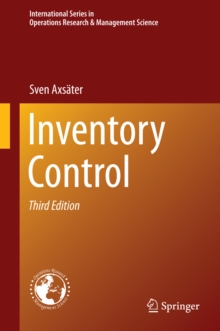
Causal Analytics for Applied Risk Analysis Paperback / softback
by Louis Anthony Cox Jr., Douglas A. Popken, Richard X. Sun
Part of the International Series in Operations Research & Management Science series
Paperback / softback
Description
Causal analytics methods can revolutionize the use of data to make effective decisions by revealing how different choices affect probabilities of various outcomes.
This book presents and illustrates models, algorithms, principles, and software for deriving causal models from data and for using them to optimize decisions with uncertain outcomes.
It discusses how to describe and summarize situations; detect changes; evaluate effects of policies or interventions; learn what works best under different conditions; predict values of as-yet unobserved quantities from available data; and identify the most likely explanations for observed outcomes, including surprises and anomalies.
The book resents practical techniques for causal modeling and analytics that practitioners can apply to improve understanding of how choices affect probabilities of consequences and, based on this understanding, to recommend choices that are more likely to accomplish their intended objectives.The book begins with a survey of modern analytics methods, focusing mainly on techniques useful for decision, risk, and policy analysis.
Chapter 2 introduces free in-browser software, including the Causal Analytics Toolkit (CAT) software, to enable readers to perform the analyses described and to apply modern analytics methods easily to their own data sets.
Chapters 3 through 11 show how to apply causal analytics and risk analytics to practical risk analysis challenges, mainly related to public and occupational health risks from pathogens in food or from pollutants in air.
Chapters 12 through 15 turn to broader questions of how to improve risk management decision-making by individuals, groups, organizations, institutions, and multi-generation societies with different cultures and norms for cooperation.
These chapters examine organizational learning, community resilience, societal risk management, and intergenerational collaboration and justice in managing risks.
Information
-
Out of stock
- Format:Paperback / softback
- Pages:588 pages, 95 Illustrations, color; 26 Illustrations, black and white; XXII, 588 p. 121 illus., 95 i
- Publisher:Springer Nature Switzerland AG
- Publication Date:24/01/2019
- Category:
- ISBN:9783030086534
Other Formats
- Hardback from £249.99
Information
-
Out of stock
- Format:Paperback / softback
- Pages:588 pages, 95 Illustrations, color; 26 Illustrations, black and white; XXII, 588 p. 121 illus., 95 i
- Publisher:Springer Nature Switzerland AG
- Publication Date:24/01/2019
- Category:
- ISBN:9783030086534










